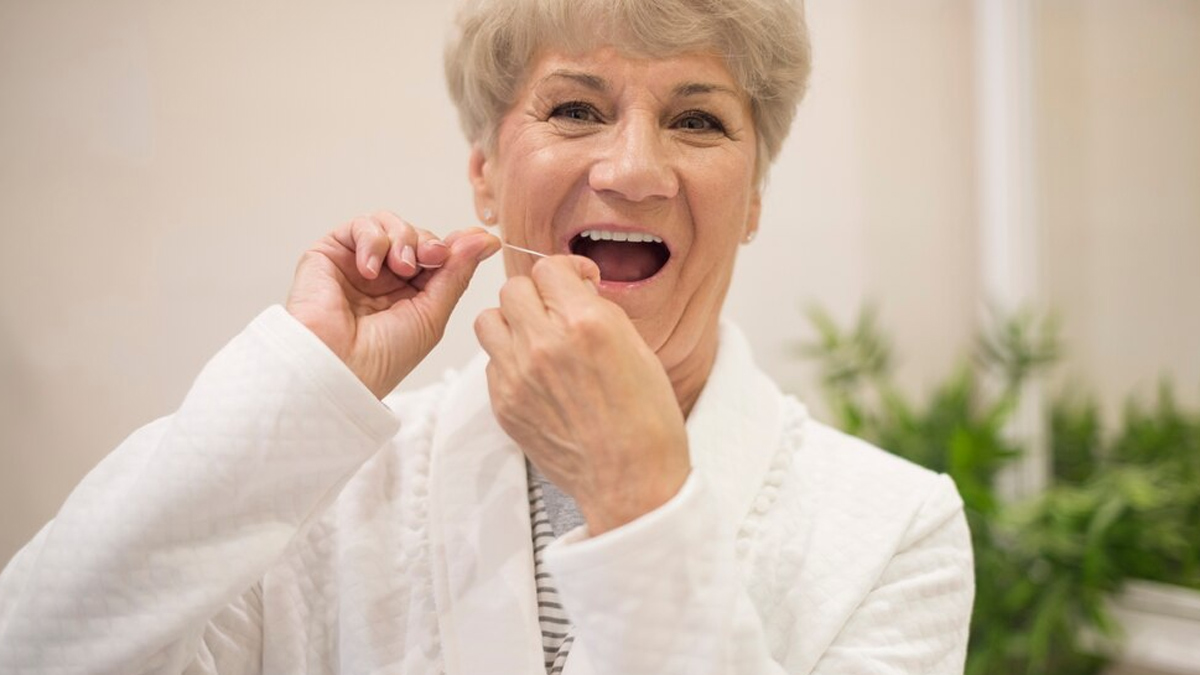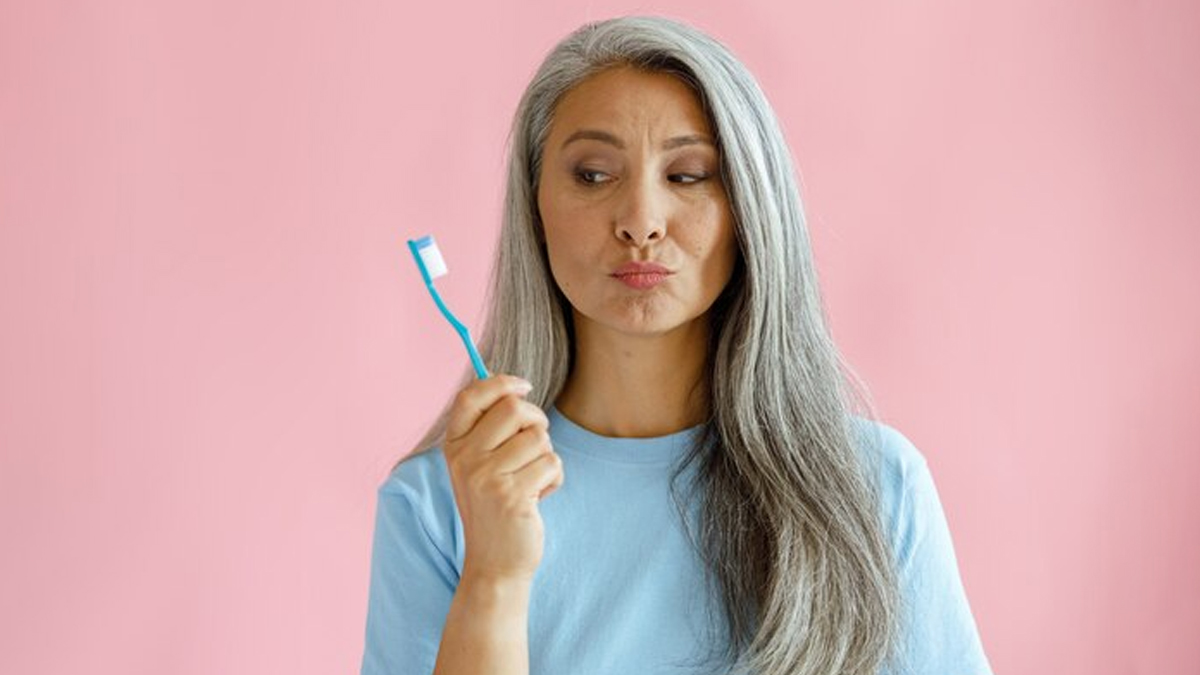
Menopause is a natural phase marking the end of a woman’s reproductive years and generally happens between ages 45 and 55, though it can occur earlier or later. During this time, known as perimenopause, the body undergoes various changes due to a decline in oestrogen levels. This transition can span several years, often causing symptoms like hot flashes, night sweats, mood swings, irregular periods, and even brain fog and anxiety. But did you know that menopause can also impact oral health? To shed light on this, we at OnlyMyHealth spoke with Dr Aakruti Agarwal, BDS, MDS, from Quality Dental Care in Amravati, Maharashtra, who explained the link between menopause and oral health and shared tips for managing related issues.
Table of Content:-
Also Read: Fabulous Lives Vs Bollywood Wives: Exploring Bhavana Pandey’s Bold Take On Perimenopause
Common Oral Health Problems During Menopause

A recent study published in the Journal of Population Therapeutics and Clinical Pharmacology suggested that menopause can lead to significant changes in oral health. Studies have shown that up to 60% of menopausal women experience periodontal disease, 25% suffer from dry mouth, and 15% experience burning mouth syndrome, researchers noted.
According to Dr Agarwal, these issues arise due to hormonal changes that weaken the immune system and make it harder to fight off oral infections. Common issues include dry mouth, gum inflammation, and an increased risk of periodontal disease.
Periodontal disease, also known as gum disease, is an inflammatory condition that affects the tissues and bones that support teeth.
Why Menopausal Women Experience Oral Health Issues

Explaining the link between menopause and oral health, Dr Agarwal said, “Oral issues during menopause often result from decreased oestrogen levels, which can reduce saliva production and lead to dry mouth.”
“Lower oestrogen also affects gum tissue, increasing susceptibility to inflammation and periodontal disease. These hormonal shifts can weaken oral defences, making regular dental care essential during this stage,” he added.
Also Read: World Menopause Day 2024: A Guide To Age, Stages, Signs, And Side Effects Of Menopause
How To Mitigate The Risk

To reduce menopause-related oral health issues, women should stay hydrated, avoid alcohol and caffeine, and consider using sugar-free gum to stimulate saliva, recommended Dr Agarwal, adding that a daily routine of brushing, flossing, and using fluoride toothpaste helps protect teeth.
Additionally, regular dental check-ups can ensure early detection and management of potential gum issues.
During menopause, there is also a need to increase the intake of calcium-rich foods (like dairy, leafy greens) and vitamin D to support bone and dental health. Foods high in antioxidants, such as berries, help reduce gum inflammation, and omega-3 supplements may also lower inflammation, while vitamin C aids in gum repair.
However, before starting supplements, consult a doctor.
When Should Women Seek Dentist’s Attention During Menopause?
“Women in menopause should consult a dentist if they experience persistent dry mouth, gum bleeding, soreness, or changes in taste. These may indicate hormonal impacts on oral health, like increased risk of gum disease or tooth decay. Regular dental visits every six months are also advised for preventive care,” Dr Agarwal concludes.
Also watch this video
How we keep this article up to date:
We work with experts and keep a close eye on the latest in health and wellness. Whenever there is a new research or helpful information, we update our articles with accurate and useful advice.
Current Version